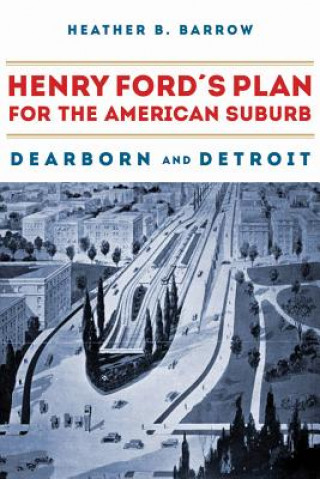
Kézbesítés
Vásárlási tanácsadó





Nem vált be? Semmi gond! Nálunk 30 napon belül visszaküldheti
 Ajándékutalvány
bármilyen értékben
Ajándékutalvány
bármilyen értékben
Ajándékutalvánnyal nem nyúlhat mellé. A megajándékozott az ajándékutalványért bármit választhat kínálatunkból.
Henry Ford's Plan for the American Suburb
 Angol
Angol
 397 b
397 b
30 nap a termék visszaküldésére
Ezt is ajánljuk


In the late 1910s, Henry Ford relocated his industry to a Detroit suburb called Dearborn. Due to the high wages he paid, this became the first place in the nation where the modern "American dream" was realized: it was here that the ordinary person could own a house and a car. Ford's intention that wage earners attain such a standard of living was an integral part of "Fordism," which linked together not only mass production and mass consumption, but also mass suburbanization. However, throughout the interwar period, progress was costly: increased automobile use displaced transit, patterns of segregation emerged, and the relocation of industry to suburbs meant a decimation of the central city. The onset of the Great Depression further threatened quality of life for residents. In response, automobile workers went on strike and won a contract unprecedented in its favorability to labor, one that guaranteed a new social compact providing a complete set of wages, benefits, and rights. This arrangement dovetailed with the post - New Deal rise of the welfare state, in which such entitlements spread throughout society and reinforced suburban settlement patterns. In retrospect, Dearborn anticipated the high level of consumerism, declining significance of class, ongoing racial division, dependence upon the automobile, and central-city divestment that continue to be associated with typical American suburbs.
Információ a könyvről
 Angol
Angol
Kategória




 Hogyan vásároljunk
Hogyan vásároljunk
























